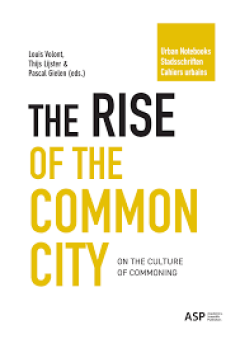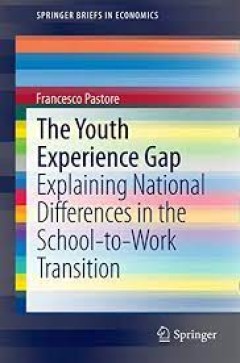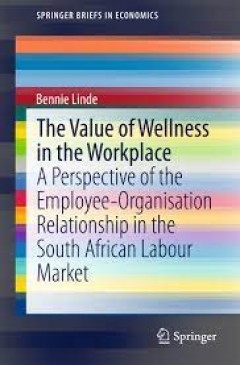Filter by

The Rise of the Common City On the culture of commoning
Artists and creative workers have long been attracted to urban environments. Yet the ‘creative city ‘of the 21st century comes with its own pitfalls. From precarity at the level of the worker to gentrification at the level of the city: the creative engine starts to sputter. Therefore, after or even against the creative city, this book highlights the ‘common city’. The Rise of the Common…
- Edition
- -
- ISBN/ISSN
- 9789461173492
- Collation
- -
- Series Title
- -
- Call Number
- -

Narratives of Place, Culture and Identity Second-Generation Greek-Americans …
Christoe onderzoekt in haar proefschrift Narratives of Place, Culture and Identity. Second-Generation Greek-Americans Return 'Home' de retourmigratie van Griekse-Amerikanen. Ze kijkt naar hoe deze migratie beleeft wordt door de migranten. Het concept 'thuis' en 'behoren bij' nemen in prominente plek in de belevingswereld van deze migranten in, evenals vervreemding en aanpassingsproblemen. Chris…
- Edition
- -
- ISBN/ISSN
- 9789053568781
- Collation
- -
- Series Title
- -
- Call Number
- -

Contemporary Indonesian Film; Spirits of Reform and ghosts from the past
This highly informative book explores the world of Post-Soeharto Indonesian audio-visual media in the exiting era of Reform. From a multidisciplinary approach it considers a wide variety of issues such as mainstream and alternative film practices, ceremonial and independent film festivals, film piracy, history and horror, documentary, television soaps, and Islamic films, as well as censorship f…
- Edition
- -
- ISBN/ISSN
- 9789004253476
- Collation
- -
- Series Title
- -
- Call Number
- -

Transnational Solidarity in Times of Crises Citizen Organisations and Collec…
This open access collection is devoted to an in-depth, qualitative analysis of practices of cross-national solidarity in response to the current political and social crises, from citizens’ initiatives to networks of cooperation among civil society actors. The book analyses existing informal groups at the grassroots, furthering transnational solidarity in three thematic areas: disability, unem…
- Edition
- -
- ISBN/ISSN
- -
- Collation
- -
- Series Title
- -
- Call Number
- -

Toward the Next Generation of Bystander Prevention of Sexual and Relationship…
This briefs integrates and synthesizes an array of research about who helps others and under what conditions and discusses the implications of this research for a bystander intervention focused prevention agenda to reduce sexual and relationship violence in schools and communities. It combines an examination of bystander helping behavior in the specific context of sexual and relationship violen…
- Edition
- -
- ISBN/ISSN
- 978-3-319-23171-6
- Collation
- -
- Series Title
- -
- Call Number
- -

The Youth Experience Gap Explaining National Differences in the School-to-Wo…
The education to work transition of young people is key to a successful work-life and to fight youth unemployment. The book provides an impressive outline of the facts and convincing insights of the potential causes. This offers a large and broader audience help to adjust properly to achieve a better life.” Klaus F. Zimmermann, IZA, Bonn, Germany This work points to the youth experience g…
- Edition
- -
- ISBN/ISSN
- 978-3-319-10196-5
- Collation
- -
- Series Title
- -
- Call Number
- -

The Value of Wellness in the Workplace A Perspective of the Employee-Organis…
This book examines the links between employee-organisation relationships, work wellness and the impact thereof on the labour market from a South African perspective. By employing this focus, the book explains the role of the employment relationship and the psychological contract in improving work wellness. To do so, it reviews the establishment and management of contracts in the context of labo…
- Edition
- -
- ISBN/ISSN
- 978-981-287-402-3
- Collation
- -
- Series Title
- -
- Call Number
- -

The State as an Actor in Religion Policy Policy Cycle and Governance Perspec…
Maria Grazia Martino and her contributing authors highlight the different solutions found by European countries with different ecclesiastical law systems, different distributions of Christian denominations and different percentages of Muslim immigrants: Germany, Switzerland, France, Sweden, Italy and Greece. Churches and religious communities are actors from civil society. The state sets the fr…
- Edition
- -
- ISBN/ISSN
- 978-3-658-06945-2
- Collation
- -
- Series Title
- -
- Call Number
- -

The Sociology of Shari’a: Case Studies from around the World
This edited volume offers a collection of papers that present a comparative analysis of the development of Shari’a in countries with Muslim minorities, such as America, Australia, Germany, and Italy, as well as countries with Muslim majorities, such as Malaysia, Bangladesh, Turkey, and Tunisia. The Sociology of Shari’a provides a global analysis of these important legal transformations a…
- Edition
- -
- ISBN/ISSN
- 978-3-319-09605-6
- Collation
- -
- Series Title
- -
- Call Number
- -

The Socioeconomic Evolution of the European Union Exploring the Electronic F…
This volume explores the role of territory in the creation, maintenance and extension of a new type of frontier, the electronic frontier, from a social and economic point of view. It departs from the earlier concepts of borders – state, social, economic, ethnic, religious, etc. – to investigate the fluidity of borders and their shift towards an axis-based paradigm within the free-movement …
- Edition
- -
- ISBN/ISSN
- 978-3-319-40304-5
- Collation
- -
- Series Title
- -
- Call Number
- -
 Computer Science, Information & General Works
Computer Science, Information & General Works  Philosophy & Psychology
Philosophy & Psychology  Religion
Religion  Social Sciences
Social Sciences  Language
Language  Pure Science
Pure Science  Applied Sciences
Applied Sciences  Art & Recreation
Art & Recreation  Literature
Literature  History & Geography
History & Geography